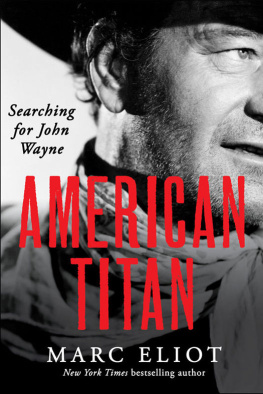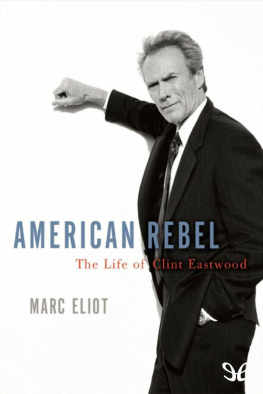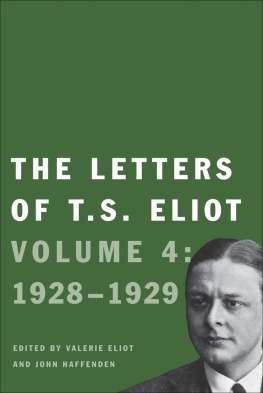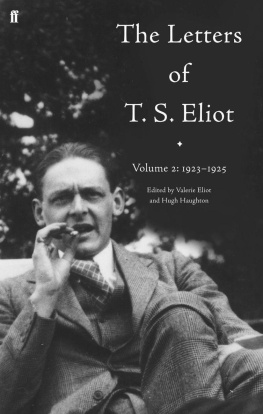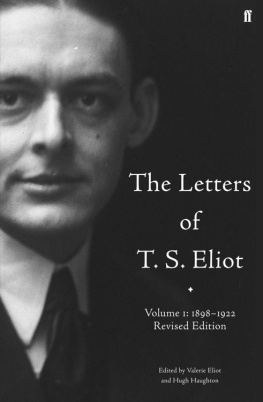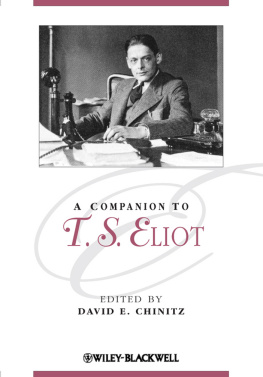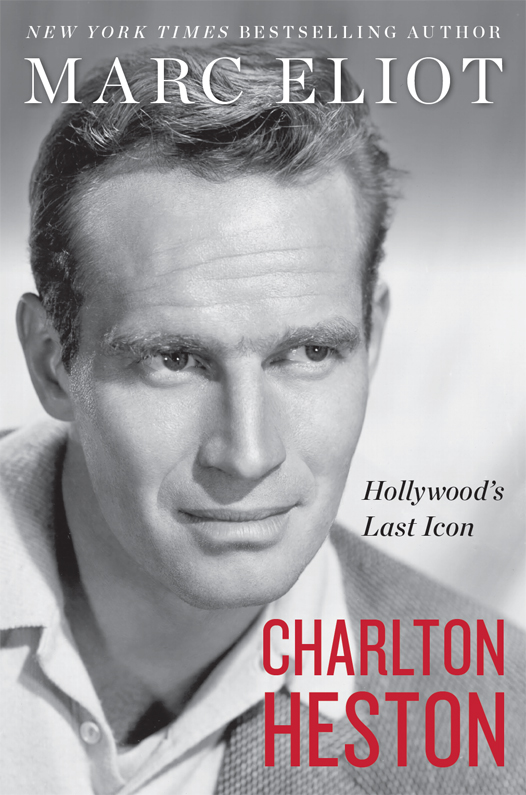Intermission
For Xiaolei Wu
Charlton Heston is an axiom. By himself alone he constitutes a tragedy, and his presence in any film whatsoever suffices to create beauty. The contained violence expressed by the somber phosphorescence of his eyes, his eagles profile, the haughty arch of his eyebrows, his prominent cheekbones, and the bitter and hard curve of his mouth, the fabulous power of his torso; this is what he possesses and what not even the worst director can degrade.
M ICHAEL M OURLET , C AHIERS DU C INMA , M AY 1960
From start to finish, Heston was a grand, ornery anachronism, the sinewy symbol of a time when Hollywood took itself seriously, when heroes came from history books, not comic books. Epics like Ben-Hur or El Cid simply couldnt be made today, in part because popular culture has changed as much as political fashion. But mainly because theres no one remotely like Charlton Heston to infuse the form with his stature, fire and guts.
R ICHARD C ORLISS , T IME MAGAZINE , A PRIL 10, 2008
If you were to ask me the old question about who is the real Charlton Heston, I wouldnt be able to answer you... I simply like pretending to be other people. Let the Freudians make of that what they want...
C HARLTON H ESTON, QUOTED IN P ETE H AMILL ,
H ESTON : L ARGER T HAN L IFE , S UNDAY E VENING P OST , J ULY 3, 1965
I was staying at the Marriott, with Jesus and John Wayne
I was waiting for a chariot, they were waiting for a train...
I was staying at the Westin, I was playing to a draw
When in walked Charlton Heston with the Tablets of the Law...
W ARREN Z EVON , M Y R IDES H ERE , 2002
B y the age of thirty-seven, Charlton Heston was an Oscar-winning Hollywood superstar. After appearing on Broadway and in dozens of live television dramas in New York City, his career crested on the tidal wave of the iconic roles he played in three of Hollywoods highest-grossing live-action features of the 50s. In the next forty-five years he appeared in more than one hundred films and was instrumental in resurrecting the largely dormant science fiction, western, and disaster film genres. He was also the longest-running continuous president of the always-roiling Screen Actors Guild, from the mid-60s through the early 70s, and was crucial in keeping the American Film Institute in existence by fighting the government to maintain a reasonable amount of federal funding for the National Endowment for the Arts, the AFIs chief source of income. He was also an accomplished stage actor. Besides Broadway, he appeared in Londons West End, in Los Angeles and Chicagos biggest theaters, and even directed on Beijings main stage. He was also a member of the Greatest Generation and saw combat in the Pacific during World War II. And he lived an exemplary life as a family man, married to the same woman for sixty-four years, with whom he raised two children.
Yet, for all that, the first and, in many instances, the only thing that comes to peoples minds when the name Charlton Heston is mentioned is his relatively late in life membership in the National Rifle Association and the infamous moment in 2000 when the seventy-six-year-old actor raised a long rifle over his head and declared, with dramatic emphasis, that the only way it would ever be taken away was From my cold dead hands! In the instant-impact, media-dominated world we live in, where a single sentence gets repeated over and over again until it can overshadow the accomplishments of an entire career, and often derail it, Hestons moment of enthusiastic NRA campaigning did just that (one thinks of Howard Dean, who suffered a similar fate when one overly enthusiastic scream fueled a media reaction that destroyed a lifetime in political service and his frontrunning presidential aspirations). As will become clear, there was so much more to Hestons life than a single exclamation. The NRA episode does not, by any stretch of the imagination, define who Charlton Heston was, all that he had accomplished in his extraordinary life, what made him tick as an artist and drove him as a man.
Heston became a superstar after portraying Moses in Cecil B. DeMillesThe Ten Commandments (1956) at a time when screen acting in America was in the midst of an extended infatuation with Method acting and its new wave of young movie stars, exemplified by Montgomery Clift, Marlon Brando, James Dean, Eva Marie Saint, Shelley Winters, and others. They were the individual standouts amid the last wave of cookie-cutter studio contract players: the Rock Hudsons, the Tab Hunters, the Joi Lansings, the Jayne Mansfields, to name a few. Heston was neither old school nor new Method; he brought something different to the screena stoic American Cold War fundamentalism he didnt learn in acting schools, or even from looking death in the eye during World War II. All of it was rooted in and flowed directly from the emotional remnants of his early, traumatic upbringing. He had his own personal version of the Method.
Heston was raised in the backwoods of Lower Michigan, where his happiest days were spent hunting, fishing, chopping wood, and swimming with his dad, and happiest nights alone by the fireplace, losing himself in the literary worlds of Mark Twains Tom Sawyer, Howard Pyles The Merry Adventures of Robin Hood, and Jack Londons The Call of the Wild. It was a time and place of childhood joy that was suddenly taken away from him when his parents divorced and his mother remarried and eventually settled in the urban environs of Chicago. The little boy lost everything: his dog, his beloved woods, his real dad, even his name.
For the rest of his life, Heston sought to reclaim that lost world through the creative universe of acting, in characters and films that resonated with him and that would define him as a figure of strength, stature, leadership, and ideals. There was Moses, who was taken as a baby from his parents and for the rest of his life tried to find and reunite with his true heritage; Judah Ben-Hur, who rose from Hebrew slavery and, once freed, searched for his former home and his missing mother and sister; Will Penny, who late in life desired to marry and become a husband to the woman he loved and a father to her boy before giving up and going his own way; Michelangelo, who was determined to please the father-figure pope by giving up his own creative urges to sculpt and instead painting the Sistine Chapel for him; Captain Garth, who fought in the Pacific during World War II to preserve Americas freedom and way of life at the Battle of Midway.
Hestons desire to reclaim the perfect world of his childhood also expressed itself politically. As his fame grew, the onetime activist Democrat, who, in 1960, had supported John F. Kennedys successful bid to become president and in 1963 marched alongside Martin Luther King Jr. at the great March on Washington, began to turn away from the liberal Left in favor of a more conservative interpretation of the Constitution, especially the Second Amendment. Eventually, he became an enthusiastic supporter of the NRA, a commitment that many in liberal-dominated Hollywood considered outrageous.
Most Tinseltown scandals dont last, whether its who slept with whom, whos getting divorced, whose dress top fell off at which function, etc. ad nauseum. Hollywood loves these bits because they do nothing so much as promote this actor or his, or her, next film. The one big no-no is politics, unless youre on the so-called ride side of the equation. During the industry-wrecking blacklist years of the 50s, not one of Hollywoods conservative starsthe Bing Crosbys, the Bob Hopes, the Gary Cooperssuffered for their patriotic positions. Some, like Ronald Reagan, used that time as a springboard to post-film political careers of varying degrees of significance. When an actor takes a position that is unpopular, he may not only lose his audience, but also the money people who finance his movies. He becomes a risk, and in an industry that purports to be an art formthe essential ingredient of which is taking risksthe last thing the financiers want. They like to play it safe, with films that look alike, sound alike, and earn alike, with no visible politics to get in the way of popcorn sales.

